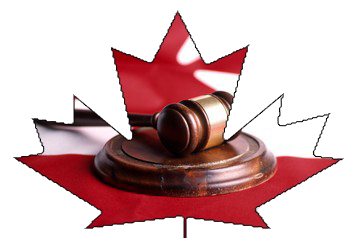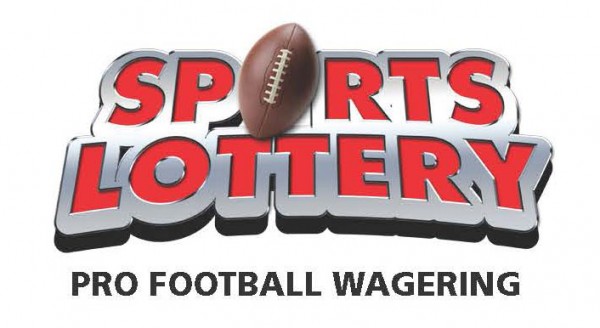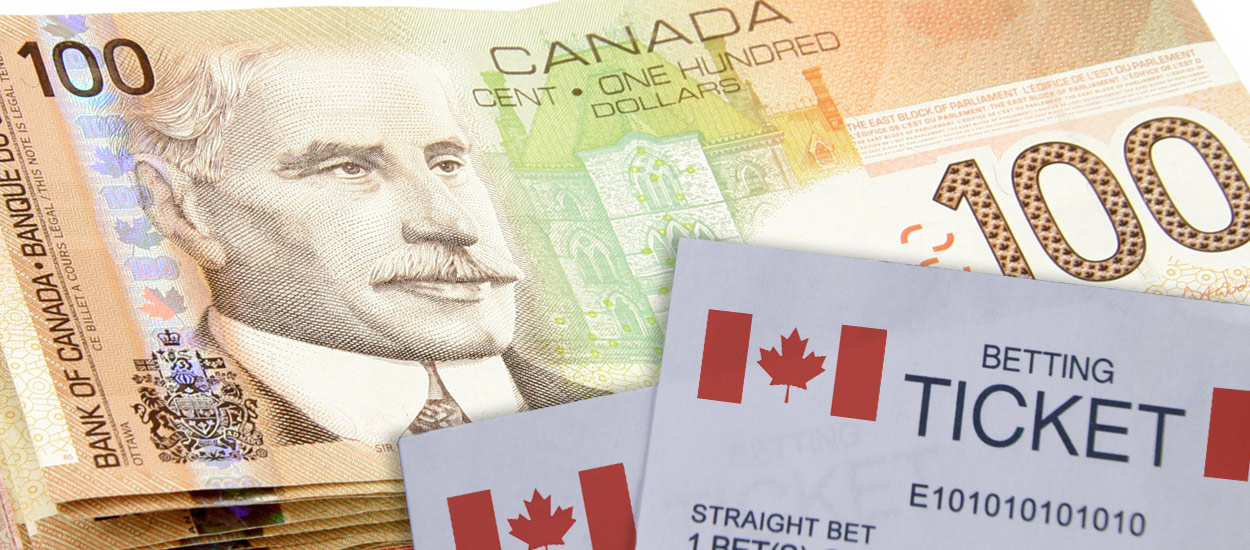Winners and . . . winners (?), in new single-game sports betting in Canada
Last week the House of Commons in Canada agreed to amend the criminal code prohibiting wagering on single events, which will pave the way for the Senate to rubber stamp the amendment for single game sports betting and make it law. If this sounds like déjà vu, it is.
Political attempts to amend the criminal code that prohibits wagering on single events dates to 2010 when Windsor New Democratic Party (NDP) Member of Parliament, Joe Comartin, introduced a private member's bill to amend the criminal code, arguing that border casinos like those in Windsor and Niagara Falls needed sports betting to lure more American gamblers, who at the time were prohibited from betting on sporting events stateside. The House of Commons heard the bill and passed it with all party support, meaning that the bill merely had to be affirmed by the Canadian Senate to become law. Until that time the unelected Senate always approved bills that passed with all party support in the House, so the bill becoming law seemed a formality. That bill, however, was sent to the Senate at a very inopportune time for sports bettors. A spending scandal was taking place in the Senate and Conservative Prime Minister Stephen Harper was discussing changing the Senate structure to make it an elected body, like in most democratic countries, rather than a group of lifelong patronage appointments. By all accounts this spooked the senators, and it created a situation where many Senate members discussed the need to do something to prove their relevance. This bill just happened to land on their desk and sources tell me that a few senators at the time were able to convince many others that stalling the bill would show the Prime Minister and General public they still had clout. And because this was a seemingly harmless sports betting bill being quashed, the senators figured the action would generate very little negative reaction. The official reasoning the Senate gave for not passing it was that it didn't receive proper debate in the House, but that never stopped the Senate from rubber stamping bills before. As well, the Senate had friends high up in the sports leagues particularly the NHL, (Frank Mahovlich, Ken Dryden and Conn Smythe were all senators at one time), and apparently league officials and possibly past senators, like Dryden, approached key members and asked them to defeat the bill, since at that time the leagues still had a position of being opposed to betting on their games. Consequently, given the climate at the time the Senate did not vote on the bill and it stalled before the end of the term meaning that it officially became dead. Later that year, Justin Trudeau and the Liberal government were voted in by a majority of Canadians and it was clear that the Liberal House was not going to do anything to make the Senate, which was comprised mostly of Liberal appointees, look bad. So, when Brian Masse reintroduced the bill in the House in 2016, it never had a chance to pass.
A spending scandal was taking place in the Senate and Conservative Prime Minister Stephen Harper was discussing changing the Senate structure to make it an elected body, like in most democratic countries, rather than a group of lifelong patronage appointments. By all accounts this spooked the senators, and it created a situation where many Senate members discussed the need to do something to prove their relevance. This bill just happened to land on their desk and sources tell me that a few senators at the time were able to convince many others that stalling the bill would show the Prime Minister and General public they still had clout. And because this was a seemingly harmless sports betting bill being quashed, the senators figured the action would generate very little negative reaction. The official reasoning the Senate gave for not passing it was that it didn't receive proper debate in the House, but that never stopped the Senate from rubber stamping bills before. As well, the Senate had friends high up in the sports leagues particularly the NHL, (Frank Mahovlich, Ken Dryden and Conn Smythe were all senators at one time), and apparently league officials and possibly past senators, like Dryden, approached key members and asked them to defeat the bill, since at that time the leagues still had a position of being opposed to betting on their games. Consequently, given the climate at the time the Senate did not vote on the bill and it stalled before the end of the term meaning that it officially became dead. Later that year, Justin Trudeau and the Liberal government were voted in by a majority of Canadians and it was clear that the Liberal House was not going to do anything to make the Senate, which was comprised mostly of Liberal appointees, look bad. So, when Brian Masse reintroduced the bill in the House in 2016, it never had a chance to pass.
Since that time, Trudeau won a minority government, the United States repealed PASPA, making sports betting regulated in the United States, all the leagues, including the NHL, dropped their opposition to sports betting, and in the last year a pandemic hit the world resulting in tough times for both the leagues and government. Thus, when Saskatchewan Conservative MP Kevin Waugh introduced a similar bill last year it was pretty much guaranteed to pass. It should be noted that the Liberal government was ready to introduce their own version of the bill, but dropped it when Waugh forwarded his private member’s bill.
The questions now are who will be able to benefit from sports betting, what are the limitations and what will happen to the current sports betting lotteries in Canada?
I ran those questions by a few government entities but unsurprisingly none were able or willing to comment other than a standard "we're looking into it" reply. That said, we can provide a calculated response of what the answers are:
Who will be able to offer sports betting?
There is no doubt that all physical casinos will have sportsbooks and competent staff with expertise in the field who will be able to book bets, move lines and hedge with other casinos when necessary, but the other options aren't so clear.
In Canada, all horse racing is overseen by the Canadian Parimutuel Agency (CPMA), whose role is to ensure the integrity of the sport by putting in all-encompassing rules which all provincial licensees must abide by. The agency takes a 0.8% levy from each horse racing wager to operate. Each province in turn has an entity which is accountable to CPMA which regulates horse racing or other pari-mutuel events in the province, including ensuring that individuals associated with the industry are on the up and up and putting in rules to promote the health and safety of all individuals connected to the sport. In Ontario that regulator is the Alcohol and Gaming Commission of Ontario (AGCO).
The AGCO regulates horse racing, casinos, lotteries, alcohol, and cannabis in the province. Ontario Lottery and Gaming (OLG), along with Woodbine Entertainment, fall under the purview of the AGCO. Consequently, when I asked spokespeople at OLG and Woodbine Entertainment about their plans once single game sports betting is approved, they referred me back to the AGCO, who never responded to my questions. In the past when I asked former Woodbine Entertainment CEOs David Willmott and Nick Eaves about the chance of the racetracks offering sports betting, each said they were in favor and had the structure in place and ability to offer sports betting easily. But they also stressed that horse racing was their main focus and wouldn’t sacrifice one for the other. The fact horse racing is excluded from the bill indicates that the government wants to keep horse racing and sports betting separate, so horse racing tracks will almost certainly not be offering other sports betting.
That leaves outside companies like Bet365, Flutter Entertainment, William Hill or even Pinnacle Sports wondering where they fit in. No doubt all offshore bookmakers would love to have a license and have the ability to accept wagers in Canada, but the question is whether agencies like AGCO or the B.C. government  will allow them to have a license, given that they have been taking wagers from Canadians for decades. While there was no specific law that made offshore wagering illegal in Canada, provinces have always contended that it was in fact illegal, since the rules of the land were that only government agencies or their appointees could offer any form of gambling. So technically taking bets from Canadians wasn't above board and some provinces, like Prince Edward Island, long claimed these were illegal sites cutting into legitimate casino and lottery profits. At the same time, these offshore companies offer a lot of potential to generate the most revenue for the provinces resulting from prior practices and knowhow that in the end that will benefit the government through taxes on profits.
will allow them to have a license, given that they have been taking wagers from Canadians for decades. While there was no specific law that made offshore wagering illegal in Canada, provinces have always contended that it was in fact illegal, since the rules of the land were that only government agencies or their appointees could offer any form of gambling. So technically taking bets from Canadians wasn't above board and some provinces, like Prince Edward Island, long claimed these were illegal sites cutting into legitimate casino and lottery profits. At the same time, these offshore companies offer a lot of potential to generate the most revenue for the provinces resulting from prior practices and knowhow that in the end that will benefit the government through taxes on profits.
Gamblers themselves do not pay taxes on winnings in Canada, but taxes to the casinos are fairly high and based on profits. So, it's most likely that provinces will use the U.S. as a guide and will allow the companies to operate as long as they partner with existing casinos and possibly provide some sort of fine for past wrongs. Caesars Windsor will almost certainly use the William Hill brand as their sportsbook since the company bought the U.S. operations of William Hill last year, but who the other casinos team up with is yet to be seen. British Columbia and Manitoba used to have Flutter Entertainment (Paddy Power) as the sports service provider for the Playnow.com brand, but now they now use SG Digital, who has a contract until 2024, and it's almost certain they will be running all the online sports betting in that province. As for the physical casinos, most likely Great Canadian Gaming, which runs most of the casinos, will partner with SG Digital or one of the other companies to run the sports betting operations. Can Pinnacle or other non-EU offshore companies get a license? Maybe but only if they have the capital to partner with a casino and only if there are casinos or governments in Canada which are interested and that is yet to be seen. As well any licensees would still have to be approved by regulators and any past indiscretions could disqualify them or make it more difficult.
What will be the limitations?
The answer to that question is uncertain. Given the fairly conservative nature of the country there will likely be maximum betting limits, which will be far lower than in other countries. It would be very unlikely to see any sportsbook accept a million-dollar Super Bowl wager for example, and undoubtedly the regulators will mandate maximum payouts. It is also very unlikely that provinces will allow interprovincial pools or any wagering between provinces. While not as stringent with geo-locating as the United States is, the provinces still want to ensure that all sports bets are strictly kept in the province whether made at land-based facilities or online. To that end, any companies like Bet365 or William Hill that get a license, whether individually or partnered with a current casino, will almost certainly be required to have offices in Canada and more than likely cut off Canadians to their international sites. When Flutter Entertainment won the right to run the playnow.com website in British Columbia, they almost immediately announced that Canadians were barred from Betfair.com. Paddy Power never accepted Canadian customers.
As well there will likely be far less events offered in many provinces than one sees in the U.S. or UK. According to sources betting on Canadian university games is strictly off limits and there may be some discussion of other Canadian amateur sports, including the Olympics. U.S. college betting is allowed and already offered in the current sports lotteries. Most novelty bets like the Oscars will be allowed, but it's very possible that political bets will be off limits, as some of the politicians in the House are demanding it. Bets in poor taste such as how many people will die from Covid will be absolutely illegal.
Lastly, it is almost certain that some banks will exclude deposits using their institutions for online sports betting. The current online casino and horse racing sites in Ontario only allow deposits from RBC or TD Bank, so there's no reason to think it would be different for sports betting. Ironically, neither banks allow deposits for offshore gambling, but other Canadian banks, like CIBC, does.
What will happen with the sports lotteries? Most analysts agree that those playing the sports lottery, which requires a minimum of 3 game parlays, are different clientele than those who will bet at actual sportsbooks. While casual bettors have no issue playing a $2 or $5 parlay on the lottery, which pays back only about 62 cents on the dollar, more serious sports bettors would never accept those odds and would expect payouts at the common 10% vigorish. As well, many casual bettors will still want the ability to go to a convenience store to make their small game day wagers and will have no interest in betting at a casino or even online. Thus, it's not unreasonable to expect the lotteries to continue even when single game sports betting is legalized. But to the benefit of those players, the lines in the lottery will have to improve.
Most analysts agree that those playing the sports lottery, which requires a minimum of 3 game parlays, are different clientele than those who will bet at actual sportsbooks. While casual bettors have no issue playing a $2 or $5 parlay on the lottery, which pays back only about 62 cents on the dollar, more serious sports bettors would never accept those odds and would expect payouts at the common 10% vigorish. As well, many casual bettors will still want the ability to go to a convenience store to make their small game day wagers and will have no interest in betting at a casino or even online. Thus, it's not unreasonable to expect the lotteries to continue even when single game sports betting is legalized. But to the benefit of those players, the lines in the lottery will have to improve.
So, it is now inevitable that single game sports betting in Canada will take place, but the devil, as they say, is in the details. Will Canadians see a Las Vegas or New Jersey style sports betting regimen with unfettered access to all games from the best sportsbook operators or will they be dramatically limited to a government bureaucracy? Only time will tell and OSGA will keep up to date on developments.
Read insights from Hartley Henderson every week here at OSGA and check out Hartley's RUMOR MILL!







































